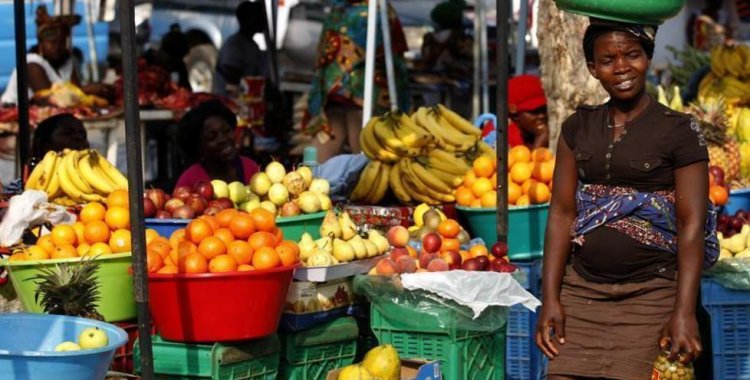Manuel Neto da Costa, who was speaking to the press on the sidelines of the year-end greetings ceremony, reacted to the downward revision by the International Monetary Fund (IMF) of the Angolan economy's forecast of growth to 1.2 percent by 2020.
The Minister of Economy and Planning said the IMF's analysis may have been influenced by the below-expected behavior of the oil sector.
"Unfortunately, there are still some problems in the oil sector, operational problems that have led to a downward trend in production. Anyway, today there are investments being made in the field of prospecting, so that they can know the reserves and bring more production in replacement of fields, whose maturity level has reached its peak and now have a downward trend", said the minister.
Asked if the country maintains its 1.8 per cent growth forecast, Manuel Neto da Costa said that evaluations are currently taking place from 2019 to refine the 2020 programming exercise and allow for a better assessment.
According to the detailed analysis of the second review of Angola's Extended Financing program, by 2019 the economy is expected to have a new recession of 1.1 percent instead of previously estimated 0.3 percent growth, and next year is expected to grow only 1.2 percent and not the 2.8 percent forecast by the IMF in June.
"Economic activity is weaker than expected", IMF technicians admit, pointing out that "relative to the first review projections, growth will be lower in 2019 and 2020 due to lower than expected oil production."
However, they add, "economic activity will gradually recover from 2020 on the back of moderate growth in the non-oil economy and the positive effects not only of exchange rate liberalization but also of non-oil GDP."
For next year, the government forecasts GDP growth of 1.8 percent, following a 1.1 percent contraction this year, basing this forecast on the recovery of the oil sector, which is expected to grow by 1.5 percent and in non-oil, which is expected to accelerate from 0.6 percent this year to 1.9 percent by 2020.
Manuel Neto da Costa considered 2020 a "challenging" year for the government to reverse the course of the economy, ensure that investment happens, job creation and income generation for families.
"We have the role of coordinating PRODESI (Production Support Program, Export Diversification and Import Substitution), a flagship program, but there are certain assumptions that have to be met to ensure that PRODESI succeeds. I spoke of liberalization of the exchange rate, for example, in the context of importation, the import lobby is still strong and tends to persist in mere trade, in simple importation ", he said.
The entry into force of the revised customs tariff will, according to the minister, ensure the protection of domestic production and undo imports, measures that will result and converge with the creation of a national economic base beyond oil.







